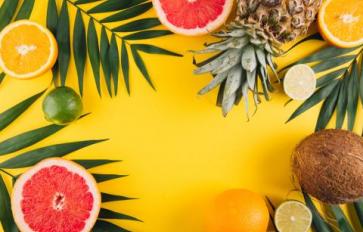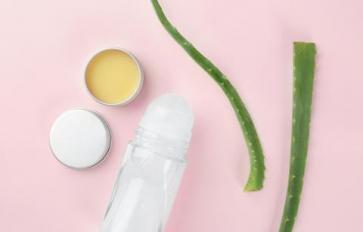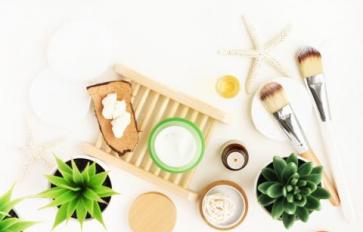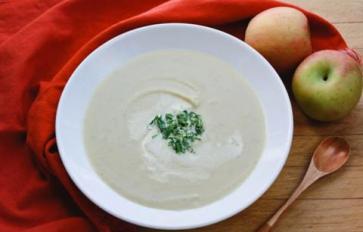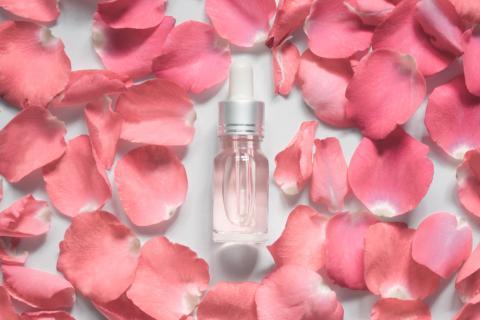
Whiteheads, blackheads, acne, clogged pores, buildup—so many skin woes can be attributed to poor skin hygiene, further aggravated by a humid climate, poor lifestyle, and sometimes faulty genes. While the "gene" bit cannot be changed (nor should breakouts make you move cities), a better lifestyle and a good skincare routine can fix what is broken. A very important part of "good" skincare is the C of CTM—which at night translates to removing makeup. But we don’t need harsh makeup removers to do the job right—some homemade DIY concoctions might just prove to be better.
Why Do We Need Makeup Removers?
A commonly asked question is why do we need makeup remover—can’t soap (read: face wash) and water do the trick? The answer is no, never fully. Makeup is both oil and water based. A face wash does take off the water-based makeup but does little or nothing to the oil-based bits—particularly mascara, lipstick, crème eye shadows, blush, and even creamy foundations. Makeup left on during the night clogs the pores and literally suffocates the skin, robbing it of oxygen as well as rejuvenation. The result? Blemishes, whiteheads, acne, and an overall dull skin…
Is There A Makeup Remover For My Skin Type?
Makeup removers are based according to the type of makeup that needs to removed—but basically, since makeup is often both oil- and water-based, you need a makeup remover to combat both. That said, you should choose a remover based on your skin type—and for each bottled type, we give you natural alternatives that do the job just as well and protect the skin a lot more.
Oil-and-Water Suspensions
Most makeup removers in a bottle today contain separate layers of oil- and water-based suspensions—you can actually see the "oil" layer floating on top of the "water" layer. Generally labeled as "eye and lip makeup removers," they are safe and gentle enough to be used all over the face, and yet active enough to take off all the makeup for all skin types.
Let’s Go Natural: To make your very own natural oil-and-water makeup remover, use virgin olive oil or virgin coconut oil and distilled rosewater in 1:1 ratio. Put both in a disinfected glass or plastic bottle that has a pump, spray, or nozzle for easier use. Store in a cool place, away from sunlight and heat—it should last you 2-3 months. To use, pour some onto a cotton pad and wipe away for fresh skin.
Makeup Removal Wipes
Wipes come in all shapes and sizes, be they little pads in boxes or the baby wipe variety. Basically, makeup removal wipes celebrate the sloth in us and save us the bother of shaking bottles and pouring out products onto cotton. Simply take a pad or tissue and gently wipe all traces of makeup from face and neck—perfect for any "I’m-too-tired-to-remove-make-up" excuses! They work well on all skin types, too.
Let’s Go Natural: Stack 40-50 cotton pads in a quart Mason jar. In a separate container, gently mix 2 tablespoons virgin coconut oil, 2 tablespoons liquid castile soap (or any organic baby wash will also do), and 2 cups of distilled water. Zap in the microwave for 10-20 seconds at a time till all is melted and blended. Let the mixture cool a bit and pour over the cotton pads in the jar. Let it cool further and then cap the jar—one pad will take off all the makeup plus act as a face wash as well. You can further wash your face with water once done in case your skin feels soapy.
Cleansing Milk
Cleansing milk is an oil-and-water emulsion in a moisturizer base so it works best on dry, mature, or sensitive skins. Using it is simple: you dab some onto your hands and then massage your face with it (the skin around the eyes and lips too)—sort of letting the makeup soften and spread before you clean your face with tissues, wipes, towel, or cotton.
Let’s Go Natural: Remember that the cleansing milk you get at the market shelves has nothing “milky” about it! So how about we make a nourishing formula at home instead? A simple way to remove makeup and nourish the skin is to mix 1 tablespoon each of honey and yogurt (for oily skin) or fresh cream (for dry skin) and apply this on the face—massaging in for 2-3 minutes. Wash your face with lukewarm water for skin that is nourished and makeup free. You can't make this and store—just quickly mix and use as needed.
Makeup Removing Foaming Cleansers
Foaming cleansers may look and feel like a face wash but are basically foaming makeup removers that save you the trouble of a follow-up face wash. Many of them also contain mild exfoliants and multitask to give you smooth, makeup-free skin! Perfect for oily, normal, or even acne-prone skin.
Let’s Go Natural: Think foaming cleansers are hard to make at home? Think again! For a foaming face cleanser that feels absolutely great, removes makeup, and leaves the skin feeling fresh, try this. Mix a quarter cup liquid castile soap, three-quarters cup distilled water or rosewater, 1 tablespoon honey, 1 tablespoon virgin coconut or olive oil, and 20 drops of tea tree essential oil in a liquid soap dispenser bottle or container. Shake well before use—it should last you a month or two if stored in a cool place.
Bonus Homemade Makeup Remover
Now that we’ve proven that all your cosmetics need not come from market shelves for many are often laden with toxic chemicals, you can actually make yet another pretty good makeup remover at home. You need 4 tablespoons witch hazel, 2 tablespoons olive oil, 2 tablespoons castor or jojoba oil, and 4 tablespoons rosewater. Put it all in a glass bottle or Mason jar and give it a thorough shake to mix it all up. To use, dab some onto your palm and massage this over your face before wiping off with a tissue or cotton. You can also dab some onto a cotton pad and then use the damp end to wipe away all traces of makeup and leave your face feeling daisy fresh!
The beauty industry thrives on us not knowing what’s good for our skin and what’s not—remember that most of the bottled stuff we buy can be made at home with ingredients that are far safer, healthier, and more nourishing for our skin. The only flipside to homemade concoctions is that they have a much shorter shelf-life and that they too can cause allergic reactions—so make small batches and always test them before using them.


